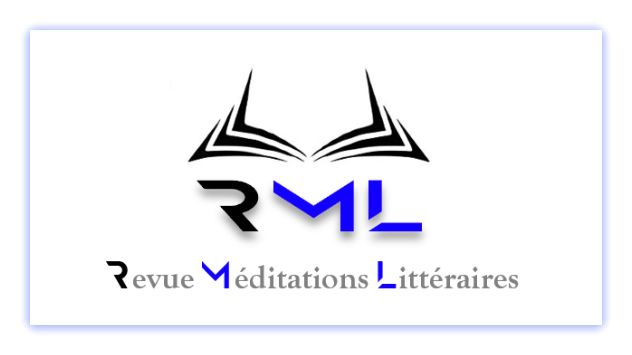Call for papers for No. 6 of Literary Meditations
Between Dream and Imagination
Both exciting and complex, the dream and the imagination are two closely related concepts, sharing several common denominators. Dreaming refers to an altered state of consciousness that occurs during sleep, while imagination refers to the mental ability to create images, sounds, ideas, concepts, or scenarios that are not necessarily related to reality as it exists in the material world. Both therefore allow the mind to escape from immediate reality and to conceive of new, different, and often extraordinary worlds. They can therefore be perceived as passages towards innovation and also self-discovery.
The dream and the imagination are fascinating subjects that have been explored in many disciplines. They are often seen as sources of creativity and self-understanding, and are closely linked to our ability to think and create new ideas. According to the psychoanalytical theory of S. Freud, the dream is considered as an expression of the unconscious allowing to reveal the repressed psychological desires and conflicts. “The dream is the disguised satisfaction of a repressed desire”, writes S. Freud. It is often symbolic and requires interpretation to be understood. Imagination, on the other hand, is considered an important psychic process because it allows the creation of new mental representations and the resolution of psychological conflicts. According to Mr. Klein, she “is a creative force that allows us to bring our wildest dreams to life. »
In philosophy, the dream is often considered a metaphor for the human condition. Kant describes human life as “a waking dream” and emphasizes the illusory nature of our existence. Imagination is also considered an essential part of philosophical thought, as it allows one to conceive abstract ideas and speculate on hypotheses. It is often associated with creativity and the ability to think beyond the limits of reality. Philosophers like Kant and Sartre emphasized the importance of the imagination in understanding reality and perceiving the world. “Imagination is the faculty that allows us to understand the world, to invent new things, to create art and to find solutions to insoluble problems”writes JP Sartre.
In literary forms, dream and imagination are often used as narrative devices to create imaginary worlds and fictional characters. Throughout the centuries, many writers have explored these concepts in their works, using dream and imagination to create extraordinary characters or fantastical situations while expressing deep emotions and asking fundamental questions about the human condition. Of The Iliad and the Odyssey (8th century BC) until Inception (2010) via The thousand and One Nights (8th century), The Divine Comedy (1321), A Midsummer Night’s dream (1600), The Tales of Mother Goose (1697), The evil flowers (1857), Alice’s Adventures in Wonderland (1865), In Search of Lost Time (1913-1927), or even The Scum of Days (1947).
In art, the dream and the imagination have been a source of inspiration for many artists. The surrealist movement, in particular, sought to explore dreams and the unconscious through works of art. Artists like Max Ernst (The Woman 100 Heads), Salvador Dali (The persistence of Memory), Yayoi Kusama (Infinity Mirrors)… have created paintings and sculptures that depict dreamlike and fantastical worlds. Likewise in cinema, dream and imagination have been recurring themes since the beginnings of the 7th art. Vertigo (1958), blade runner (1982), Paprika (2006), Inception (2010)… are all cinematographic works that have explored these themes.
This sixth issue of Literary Meditations proposes to explore the different facets of the concepts “Dream” and “Imaginary” and their psychoanalytical, literary, philosophical, artistic manifestations… Without claiming to be exhaustive, we can suggest the following lines of research, which are as many questions to which gives rise to a reflection on these two concepts:
To what extent can dream and imagination be used to create works of fiction that reflect societal concerns and cultural trends? How do the authors use dreams and imagination to explore universal themes such as love, death and spirituality? How are dreams and imagination represented in sacred texts and religious mythology? And how are visions and dream revelations interpreted in different religions? To what extent can imaginative experiences be considered divine revelations? What are the representations of dream and imagination in different forms of art, such as painting, sculpture, photography or cinema? And to what extent do they influence artistic creation? etc
For this issue, the publication of which is scheduled for the end of June 2023, the proposals for articles – in French or in English – not exceeding half a page (Times New Roman; 12; simple), must be accompanied by a brief biobibliographical notice of the author. They must be sent no later than April 23, 2023in a single Word document, to the following address: contact@meditationslitteraires.com
The editorial staff will communicate the results of the selection no later than April 25, 2023.
After acceptance of the proposals, the return of the complete articles is expected for the June 20, 2023. These will be submitted to a double anonymous expertise (double blind) after validation by the editorial board.
The scheduled date for electronic publication of this issue is end of June 2023. The paper version will be published, in Éditions Orchidées, at the mid-July 2023.
Chief Editor
Khalil BABA (HDR Higher Education Professor, Morocco)
Drafting committee
Amel FAKHFAKH (Professor of Higher Education, Tunisia)
François LE GUENNEC (Teacher-researcher, France)
Zsuzsa SIMONFFY (HDR Lecturer, Hungary)
Catherine WEBSTER (Professor of Higher Education, United States of America)
Web communications officer
Inès MESSAOUD (Teacher-researcher, France)
—
Publication of the Faculty of Letters and Human Sciences-Oujda (Morocco)
Copyright © 2023 Literary Meditations
ISSN electronic version 2658-9451
ISSN paper version 2737-8462
Legal deposit 2021PE0021
BP 3236 Oujda, Morocco
Tel: 00212.6.99.42.82.82
Between Dream and Imagination (Litterary Meditations review, n° 6)

